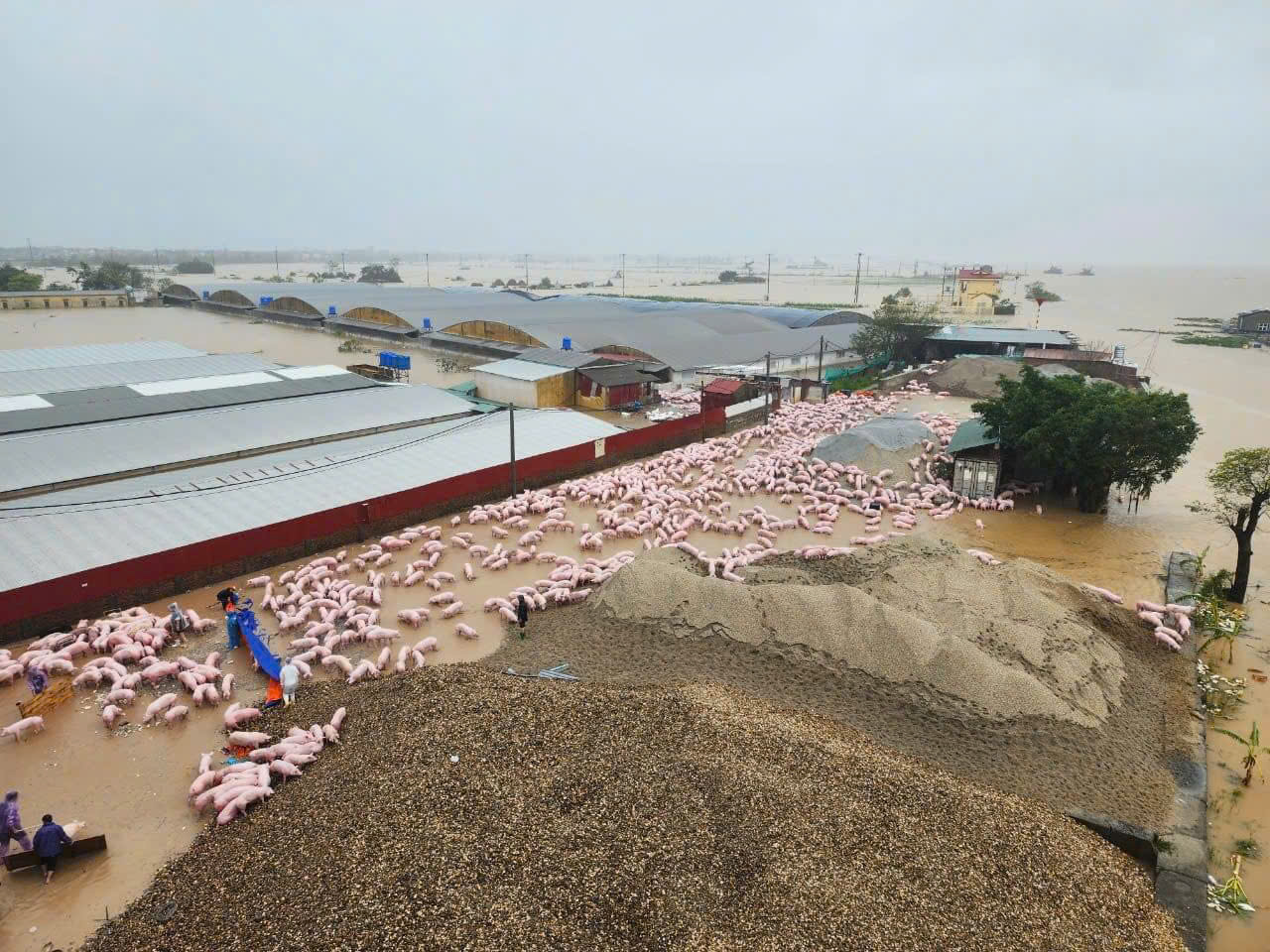Recently, the weather in many northern provinces of Vietnam has been complex, with heavy rainfall causing flooding. Notably, on September 7, 2024, Typhoon No. 3 (also known as Typhoon Yagi) made landfall in northern provinces, resulting in significant rainfall and severe flooding, which has caused serious damage in various localities. The risk of dangerous diseases spreading among livestock and poultry following this rainfall and flooding is very high.
A livestock farm in Bac Ninh Province had to relocate its animals due to the flooding.
To proactively prevent disease in livestock and manage the environment after the floods, the Ministry of Agriculture and Rural Development (MARD) has requested that provincial and municipal People’s Committees direct relevant departments and local agencies to urgently implement the following measures:
- Organize comprehensive sanitation and disinfection immediately after the flooding to eliminate pathogens in the environment.
- Provide guidance to farmers:
- Regularly clean the livestock areas and equipment, collect and properly dispose of animal waste to prevent environmental pollution. In case of flooding, relocate animals to higher ground; when the water recedes, immediately sanitize and disinfect the livestock areas before returning the animals to their pens.
- Enhance the resistance of livestock by providing adequate feed, supplementing nutrition according to specific needs, and adding necessary vitamins and minerals.
- Review and ensure that all livestock and poultry are vaccinated according to regulations, especially in areas that have previously experienced outbreaks, high-risk locations, or areas affected by flooding.
- Strengthen monitoring efforts to detect and promptly address cases of livestock and poultry diseases, particularly dangerous diseases such as African Swine Fever, Avian Influenza, Foot-and-Mouth Disease, Lumpy Skin Disease in cattle, and Blue Ear Disease. Farmers should report immediately to local authorities and veterinary agencies to investigate and manage outbreaks according to regulations. Do not slaughter, buy, or sell sick or dead animals; do not dispose of carcasses of diseased animals in the environment.
- Advise local authorities and relevant departments to formulate plans to support breeding stock, chemicals for environmental management, disposal of dead animals, and medicines and vaccines for livestock; report any difficulties and obstacles to MARD (Department of Animal Health) regarding the recovery efforts post-flooding and any issues related to local veterinary work, especially disease prevention measures for livestock and poultry, to compile and propose timely support measures to the government.
- Establish task forces to visit localities to direct, supervise, and guide the implementation of disease prevention measures for livestock and environmental management after the flooding. MARD requests that provincial and municipal People’s Committee chairs pay attention to the implementation of the above measures and inform MARD of any emerging issues for timely coordination and resolution.

